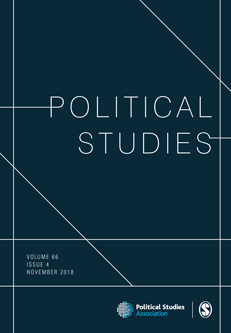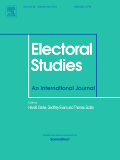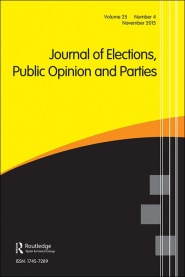Turnout

Public Opinion, Turnout and Social Policy
Abstract According to democratic theory, policy responsiveness is a key characteristic of democratic government: citizens’ preferences should affect policy outcomes. Empirically, however, the connection between public opinion and policy is not self-evident and is increasingly challenged. Using an originally constructed dataset with information from 21 OECD countries between 1980 and 2014, our research design allows […] Read more
New publication
The article ‘Voter turnout decline and stratification: Quasi-experimental and comparative evidence of a growing educational gap‘, co-authored by Ruth Dassonneville and Marc Hooghe is now available online. The article is forthcoming in Politics. Abstract Turnout rates are in decline in advanced democracies, but the consequences of this trend for inequalities in participation have not yet […] Read more
Age and Voting

Voter Turnout Decline and Stratification
Abstract Turnout rates are in decline in advanced democracies, but the consequences of this trend for inequalities in participation have not yet been investigated in a large, comparative study. In this article, we investigate educational inequalities in six countries. First, we examine whether Tingsten’s law of dispersion holds and whether decreasing turnout rates imply more […] Read more

High Turnout in the Low Countries
Abstract We use a quasi-experimental framework to test the conventional wisdom that left-of-center parties benefit from higher turnout by analyzing the partisan effects of the abolition of compulsory voting in the Netherlands. Fixed effects, multilevel, and matching models of party family vote shares in the Netherlands before and after the reform–and in reference to a […] Read more

Staying with the Party, Switching or Exiting?
Abstract A large body of literature has investigated the factors that lead to abstention on the one hand or vote volatility on the other hand. We argue in this paper that the most fruitful approach is to simultaneously consider the exit, voice, and loyalty options. The analyses are based on data from the Comparative Study […] Read more